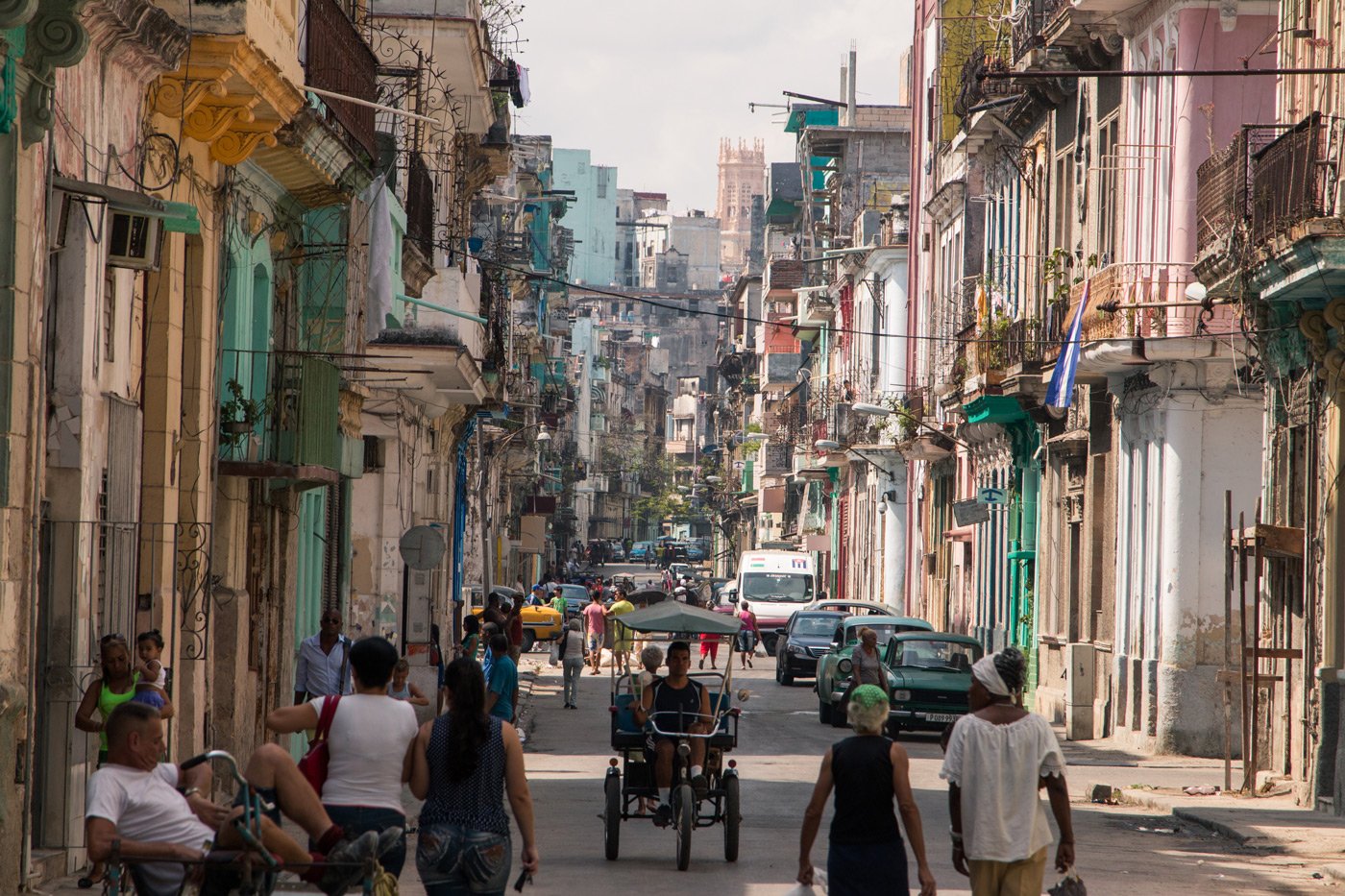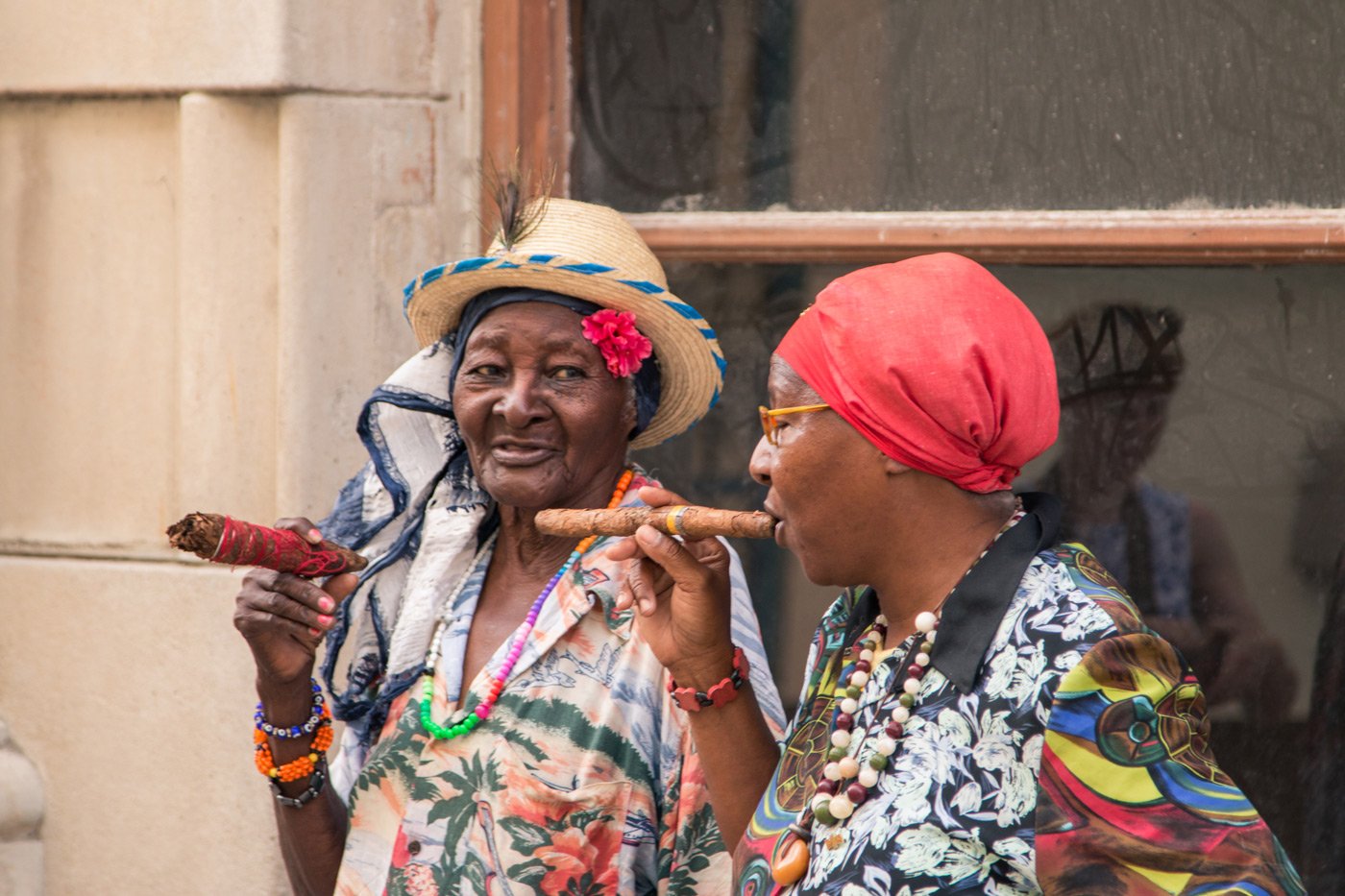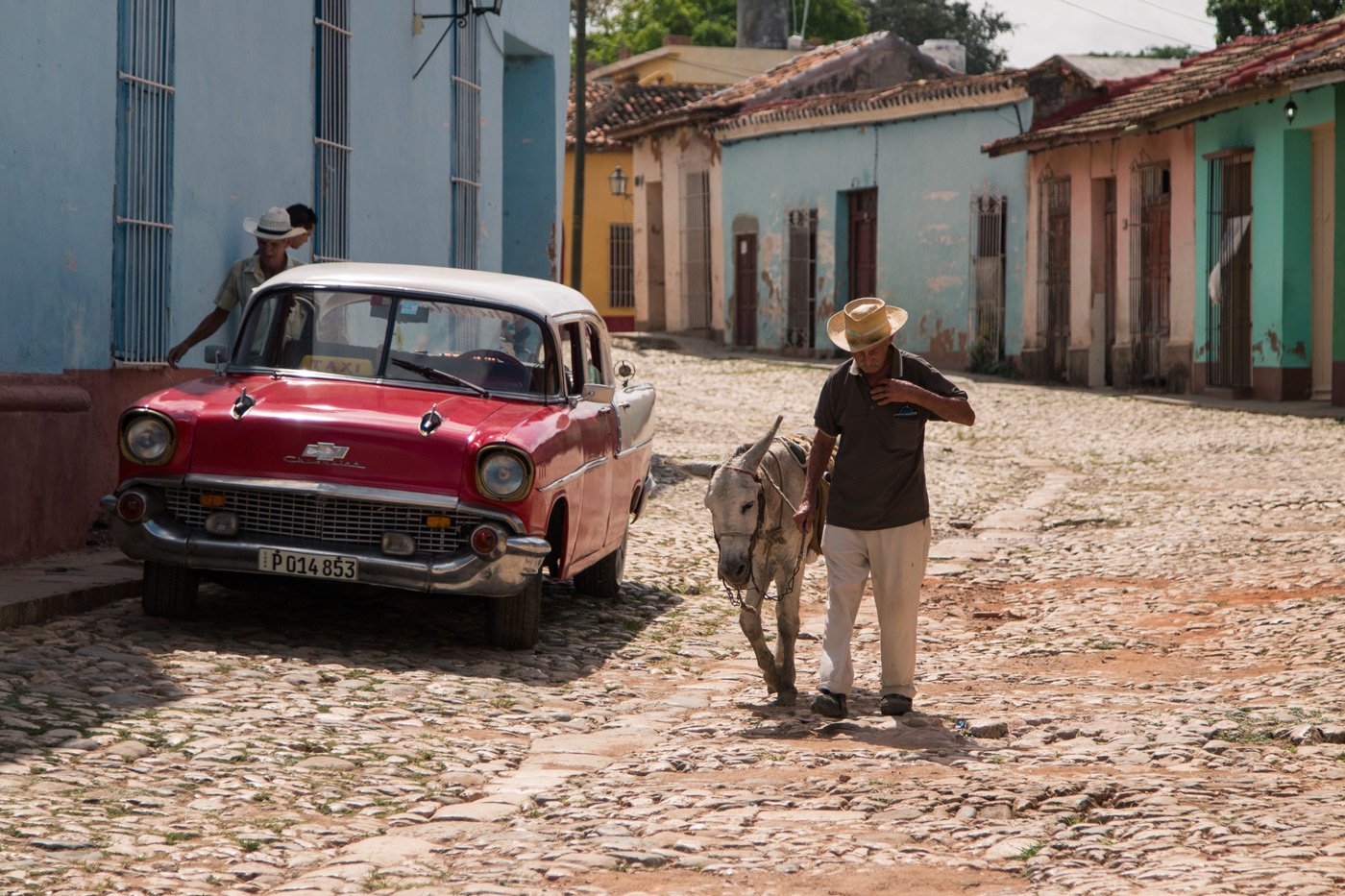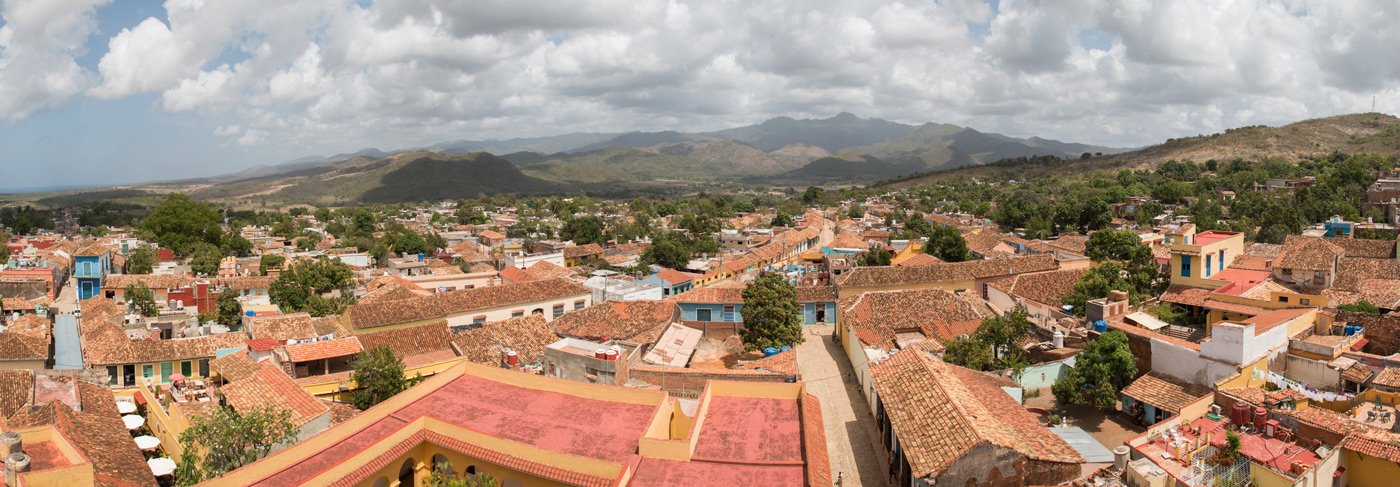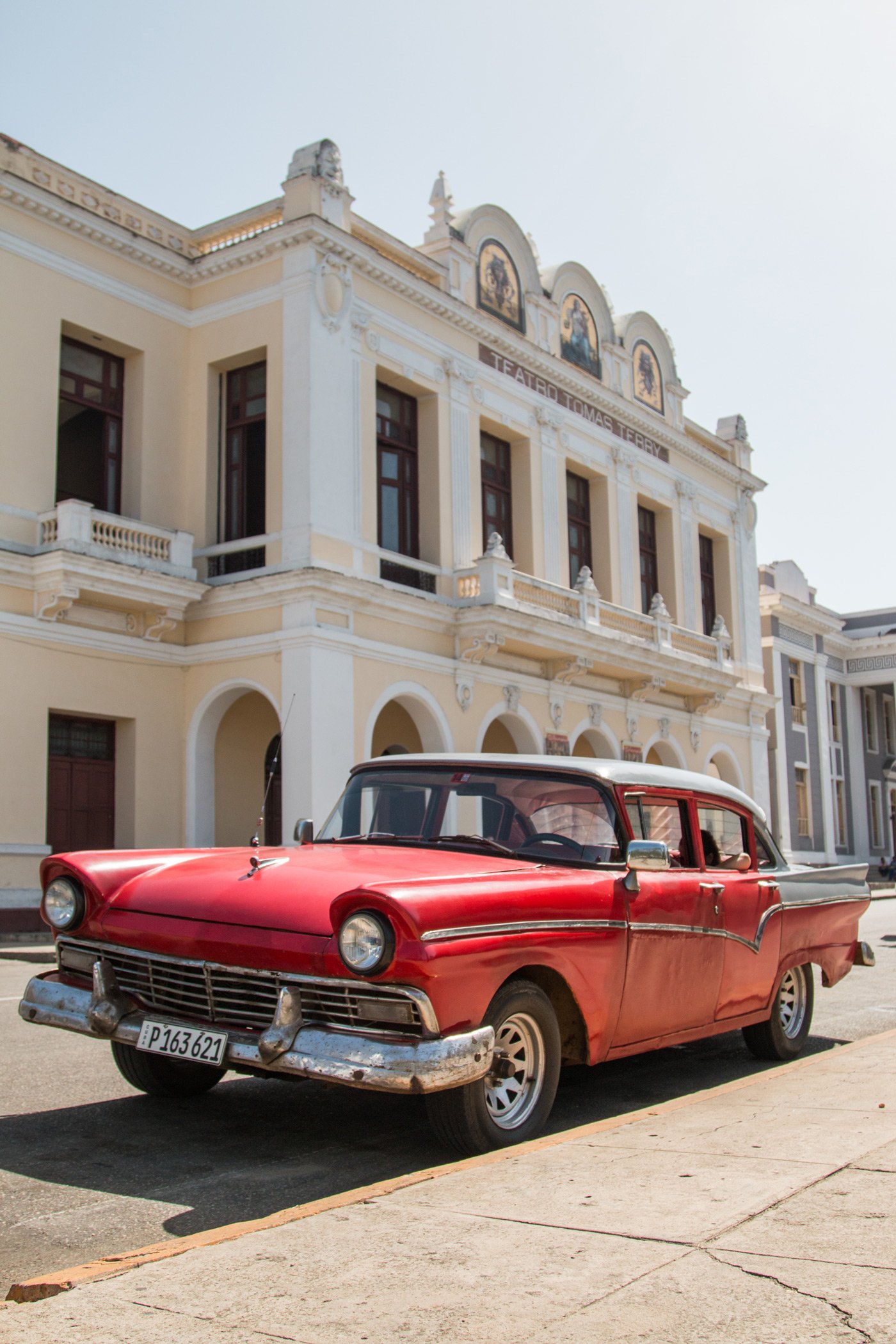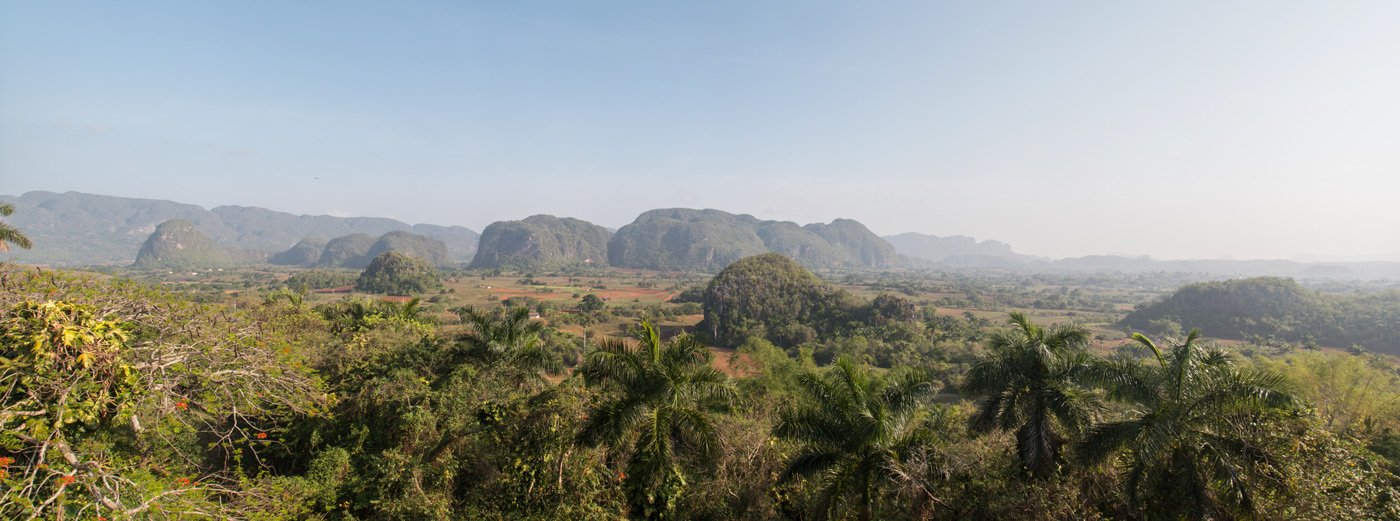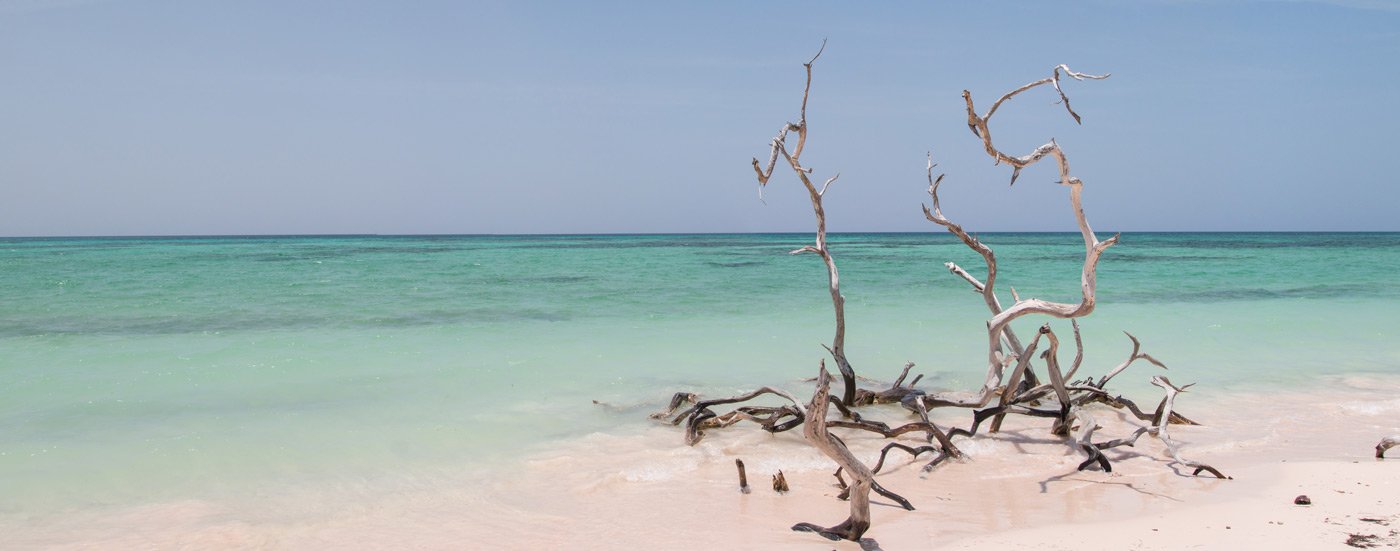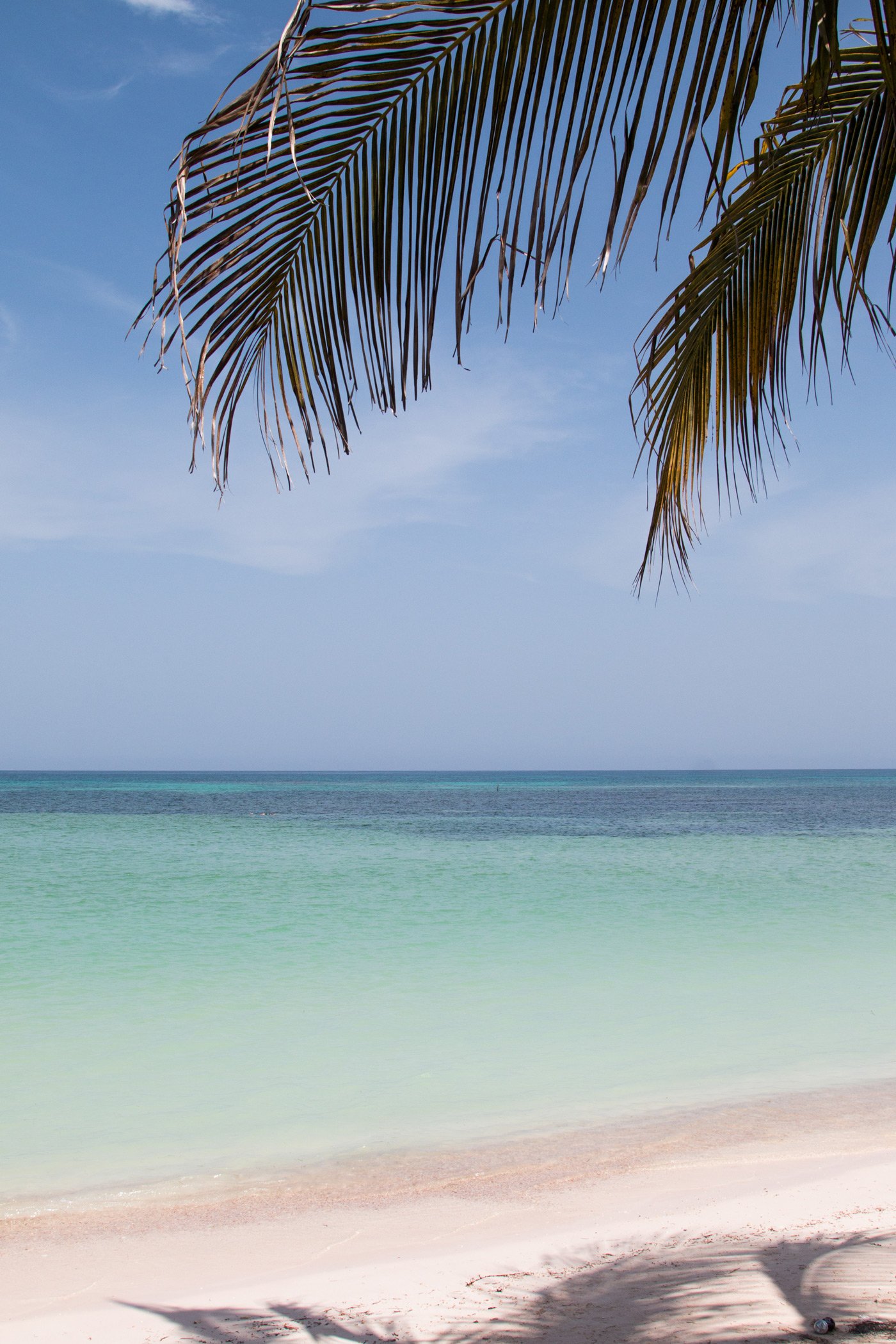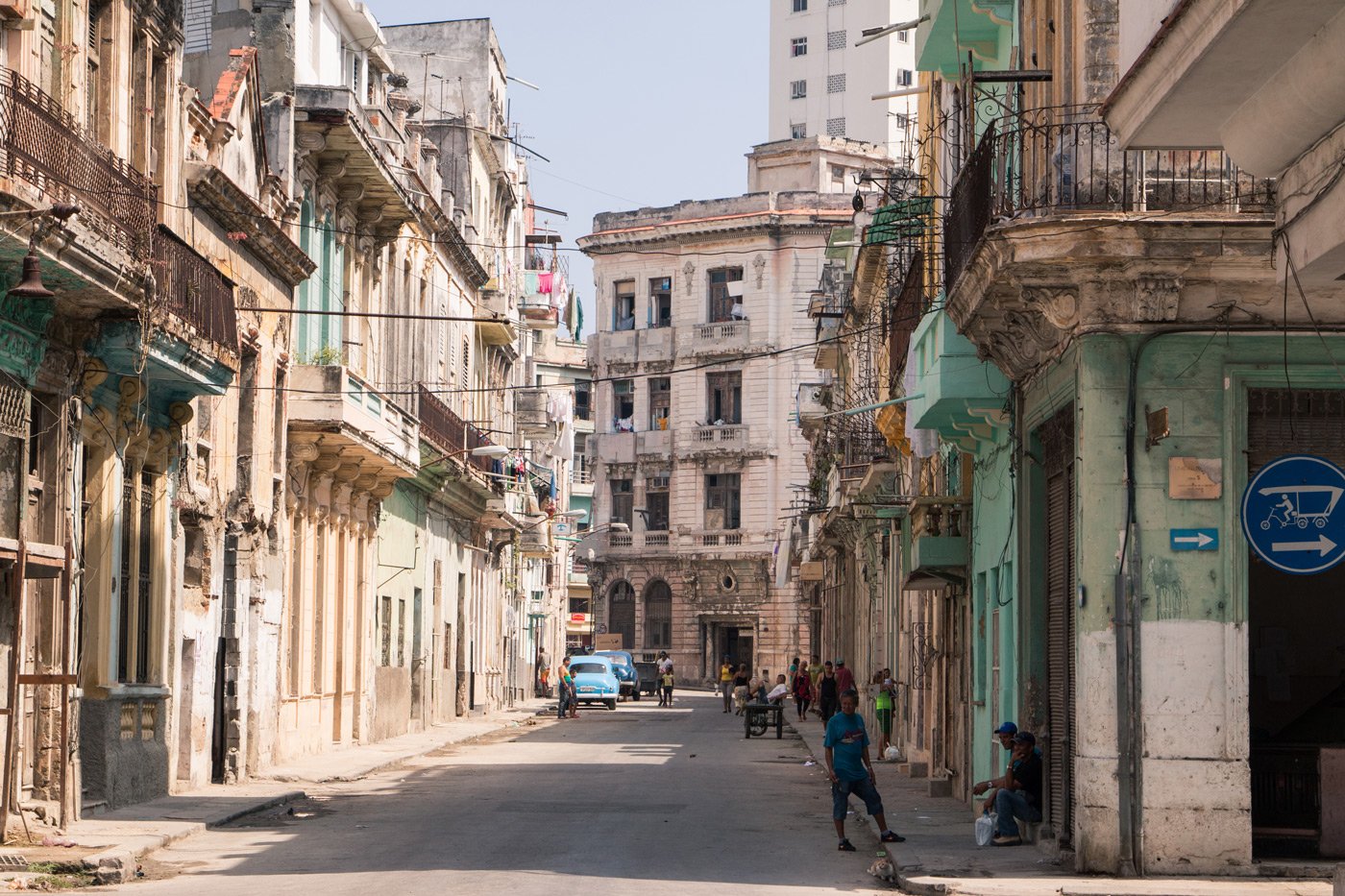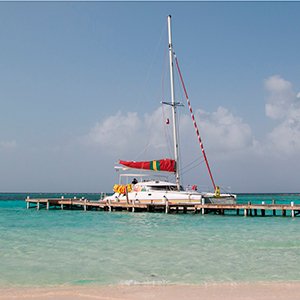In 2015 my girlfriend and I quit work, packed our bags and travelled for over a year. This a series of blog posts and photos that cover our adventures in Central and South America.| Days away from home | 403 |
| Countries | 17 |
| Flights | 35 |
| Photos taken | 13,463 |
27th April 2015
The reunion with Lauren in Mexico City airport after 3 months apart did not go as smooth or dramatic as we had hoped. She was coming in from a ridiculously long 40 hour haul from Sydney → Auckland → Santiago → Mexico City and I was coming from Los Angeles. We were supposed to have plenty of time before our next flight to Havana, Cuba to relax and catch up but thanks to some delays, slow immigration and incorrect directions we were instead running around the airport carrying all our bags with barely a hello.
We made it to the gate in the end, got our visa and relaxed for around 5 minutes before getting on the plane. Of course after being one of the last people to check-in to the flight we weren't sitting next to each other on the plane... the reunion would have to wait for the short flight over the Caribbean.
Entry into Cuba was surprisingly quick and easy, thanks largely to us being from the friendly country of Australia. We exchanged Euros for Cuban Convertible Pesos or CUCs (the "foreigner" currency) and jumped in a taxi to our accommodation. We found some lunch and the rest of the afternoon was spent exploring the streets of Havana filled with crumbling buildings and old American cars whilst battling to get used to the heat and humidity.
Live music was something we were hoping to see if we found the right bar or restaurant. Little did we know in Cuba it would've been harder to find somewhere that didn't have music, inside or on the street. Walking through the historic district, we found a large group dancing and playing music blocking the street. As they started moving we followed, along with many others, as they led the way through the streets to a town square and performed for everyone. We watched from the shade eating local ice cream out of coconut shells. Music would prove to be the perfect common language on the trip with men, women and children of all ages either performing themselves or enjoying the show. Crowd participation was pretty much a given.
Internet access is almost non existent in Cuba. It is forbidden in homes, and only some of the bigger hotels in Havana offer time limited, paid access. This makes it often unfeasible or near impossible for locals and almost as much so for visitors. And as we were traveling well out of Havana it meant absolutely no access. You don't realise how much you rely on the Internet when traveling until it is unavailable. And I'm not talking about the odd Facebook post to keep up to date with people back home or even make them jealous. It is the use of maps, language translations, quick google searches, and transport schedules. Nevertheless, within a couple of days I had pretty much forgotten about it. My phone never went flat as I wasn't using it, we rarely needed to know the time and even lost track of what day it was.
When planning to visit Cuba, we had opted to join a small tour to help us get around as we had heard it was quite difficult on your own especially with our poquito (little) Spanish skills. We met up with our group and guide and went out to dinner to get to know everyone. We were all a friendly bunch of similar age yet from all parts of the world and got along quickly. Having a group that was easy going and keen to see and do everything made all the difference throughout the trip and meant that we got to experience much more than we had originally expected, and more than the tour itinerary outlined.
The following morning, we met bright and early and all boarded a bus heading to Trinidad. Rommel, our guide, was born in Cuba and like the majority of Cubans has not yet had the opportunity to leave the country for holiday. As a result of growing up there he is an extremely knowledgeable guide who throughout the trip explained Cuba's history in a simple yet detailed manner. He was more than happy to answer questions, make recommendations, fit in extra locations he knew to stop at along the way and even had questions for us about our countries. After talking with some of the group towards the end of the tour, I noted that we were all appreciative of his willingness to answer all our curious questions about the Cuban way of life. What might have been mundane and normal activities for him were fascinating to us as he spoke both candidly and honestly about topics such as school, university, history, home ownership, communications, family, and welfare.
We stopped along the way in Santa Clara to visit the Che Guevara monument and other historical sites relating to the Battle of Santa Clara, the site of the last battle in the Cuban Revolution. We arrived in Trinidad, split up, were introduced to our hosts and shown to our Casas. Casas are very common throughout Cuba and are similar to our bed and breakfasts though typically have a more homely feel as you are usually staying in a room within the family's house. They can cook meals for you and at some you even eat at their dining table. There is little to no English spoken in the family home so our Spanish skills were put to the test. We got by with the basics along with a smile, politeness and the odd game of charades.
Trinidad
Trinidad is a World Heritage Site and one of the most well preserved cities in the Caribbean. We ate as a group on the first night on the rooftop of one of the casas. There was an endless spread of traditional food provided including chicken, lamb, shrimp, crab, pork, beef, rice, beans, fruit, soup, salad plus more. The mood was also boosted by everyone bringing bottles of Santiago De Cuba to dinner, a quality rum exclusive to Cuba, along with several cigars. We kicked on to the streets and found the Casa de la Música, a popular outdoor entertainment area with live music, dancing and performances. It was hard to resist all the local rum based drinks at 3 CUC a piece (< $4 AUD) so we polished off many mojitos, cuba libres, daquiris, canchancharas, and pina coladas before moving on to a nightclub until the early hours with no hesitation at the 1 CUC ($1.29 AUD) entry fee.
The following morning the hangovers were multiplied with a 2km walk in the punishing heat through a National Park only to be rewarded in the end as we made it to a refreshing swimming hole and waterfall. We swam for close to an hour, jumping off the rocks and swimming through the waterfall into the cave. That afternoon our guide had organised a group salsa lesson. It was surprisingly fun considering I had been dreading it for days. Lauren and I did really well as partners and took our new skills to the dancefloor the following night at Casa de la Trova.
Lauren and I took time to explore the town of Trinidad. Walking along the cobblestone streets, we found many good photo opportunities of colourful colonial-era buildings, classic old cars, donkeys and old men smoking cigars. We climbed the bell town for an excellent 360º view of the town. That afternoon the group headed to Playa Ancon, a tropical beach on the Caribbean Sea. Despite the beautiful, clear blue water and white sand, the water was in no way refreshing at 28ºC. Instead we ducked in and out of the water to stay wet and then played frisbee in the breeze and drank cheap pina coladas on the sand.
Vinales
Our next major destination was Vinales on the western side of Cuba. It consists of leafy valleys and farmland and is said to produce the best tobacco and the best cigars in the world. Rommel, our guide, suggested we break up the long drive with a few stops along the way. This was welcomed by the group as it meant seeing some extra locations not on the tour itinerary. First stop was Cienfuegos, a rich french founded city home to many industries such as sugar cane, oil refinery, power plant, and seaport. The next pitstop was Playa Giron, a beach situated in the Bay of Pigs where we got to swim with tropical fish and watch the large red crabs running around the rocks. There is also a 70m deep cenote, much like we had seen last year in Mexico, which was cooler than the ocean and very refreshing. Much to Lauren's embarrassment, I jumped straight over the rocks and in from the top instead of waiting for everyone struggling with the ladder. Another group feast was had for dinner with unlimited lobster and the rest of the usual Cuban fare while overlooking the tobacco farms and watching bright green glowing Pyrophorus beetles flying around in the distance.
We woke early the next morning to beat whatever heat we could and go for a walk with a local guide through the valley and farms. Our small walking group was introduced to a local tobacco farmer and he explained the lengthy process of making cigars. He showed us his leaves hanging to dry and we watched on as he hand rolled a cigar and lit it for us to pass around.
For the rest of the day it was off to the beach again, this time swimming in the Atlantic Ocean at Cayo Jutia. Clear blue water, white sand and light driftwood type trees on the shore made the place look like a computer wallpaper. We kept cool in the water for much of the afternoon, playing frisbee and floating around eating coconut. Drinks that night consisted of Piña Coladas inside pineapples with pour your own rum from the bottle.
Havana
Last stop on the tour was back where it all began, Havana, the capital city. After a guided walk around the historical district and the various town squares we had our last group dinner and exchanged contact details, once we had readily accessible Internet again of course. On return to central Havana we all said our farewells and thanks to Rommel. It was clear everyone had enjoyed their time together and were very appreciative of his time during the week. We continued on as a group to find somewhere to kick on for some last farewell drinks sharing a bottle of Havana Club in the street whilst walking.
Lauren and I had given ourselves an extra couple of days after the tour to see more of Havana and took the time to see the Museum of Revolution, take an hour long ride in an old American convertible and watch the sunset whilst sitting on the Malecón sharing a Cohiba cigar.
We had read warnings before the trip about expecting poor quality of food in Cuba. I'm not sure where these people were eating but during our 11 days we did not have one bad meal. We ate plenty of amazing and super cheap seafood sometimes even twice a day. Lauren even had lobster for dinner 3 nights in a row. Sure rice and beans were a staple in every meal, but even they were enjoyable.
"Cuba is slowly changing but it will take time.. In some cases it is 50 years behind"
Despite their disconnect from most of the world I was amazed at the things they did know. Kangaroos, Sydney, Melbourne, Canberra, Cathy Freeman, Ian Thorpe and even more recent events like pointing out my iPhone 6. With tourism being a relatively new thing, at least compared to most other destinations in the world, all the people we met seemed genuinely interested in where we were from and excited that we had made the effort to visit their country.
The lack of variety in shops when it came to food, clothing and household appliances was as expected for a country that had effectively been shut off from most of the world for years. You would see shops that had only one type of blender, one toaster or one brand of softdrink. Whenever I saw a fan in houses or restaurants it was usually of the same type. It was common for a supermarket, bar or store to record sales on paper in the form of a tally for each product.
For all that was different, restrictive or antiquated in Cuba there were also many things that the government has done well in its aim to look after the people since the revolution. Free education, free healthcare, aged pensions, UNESCO recognised environmental biosphere projects, and almost zero homelessness were all areas many "first world" countries could learn from especially after my travels through the US for the past 7 weeks.
Today we flew from Havana to Cancun, Mexico and are currently heading down the eastern coast of Mexico by bus. Tomorrow we'll cross the border and reach our next stop, Belize!
Change is coming in Cuba and I'm glad I managed to see it before it does.
Hasta luego

Next: (Part 2) Belize - Island paradise.

